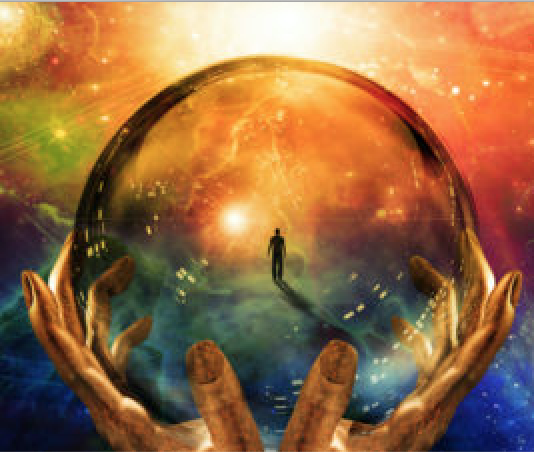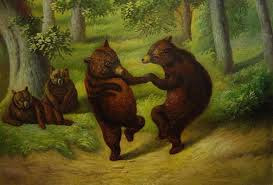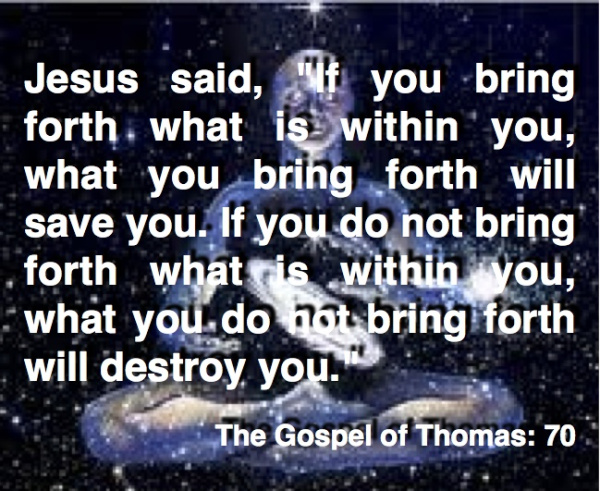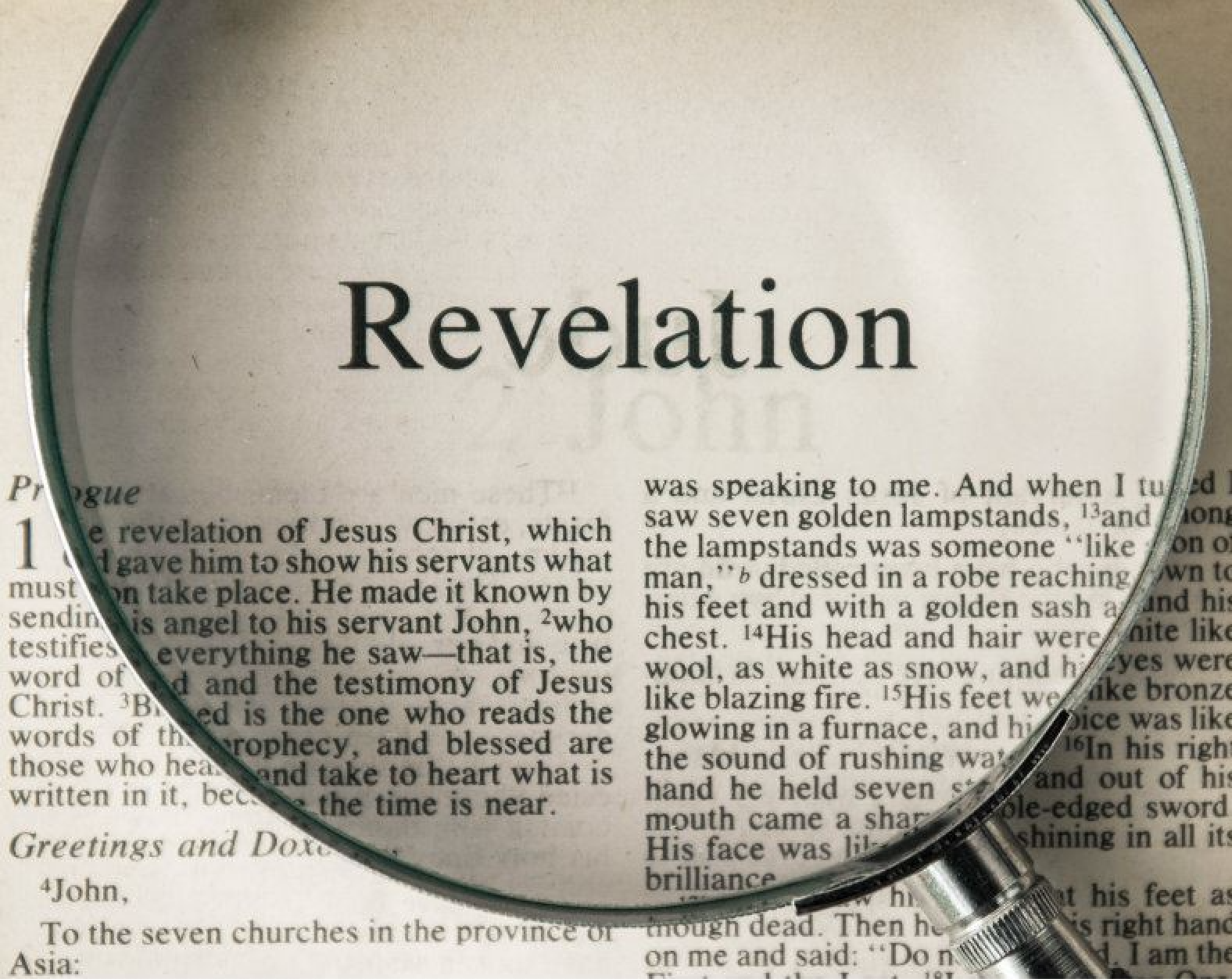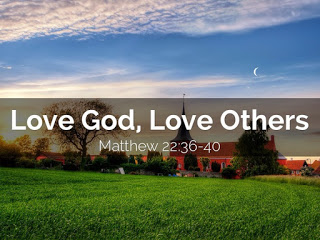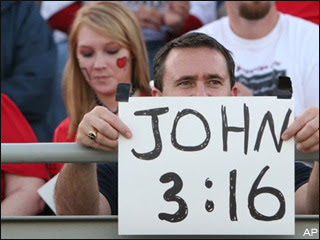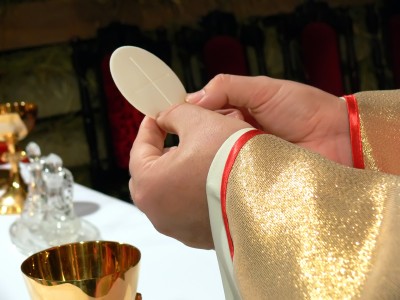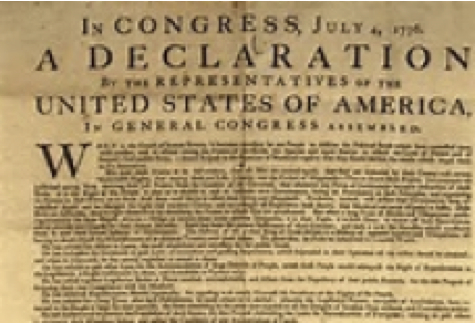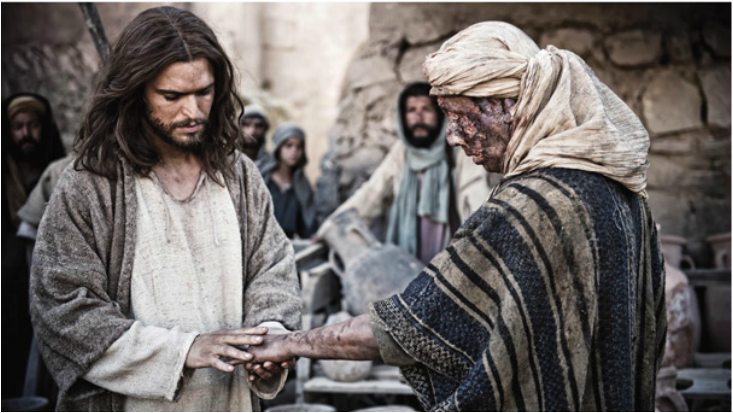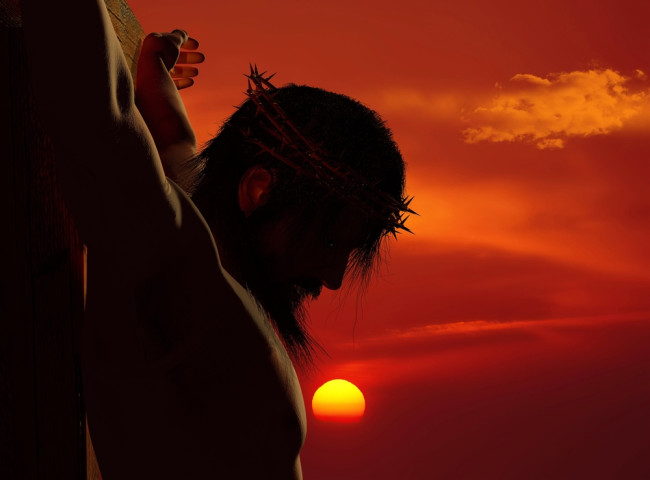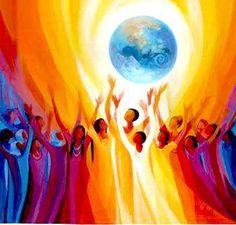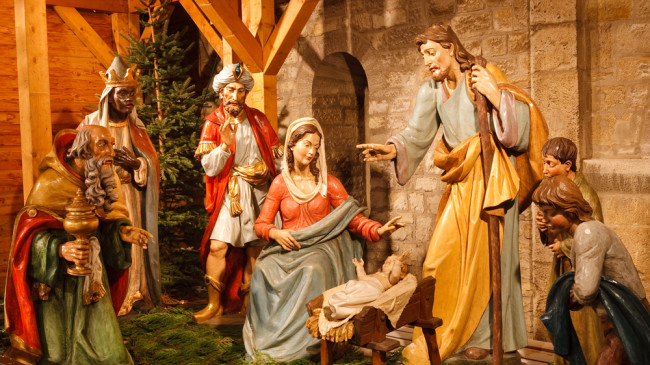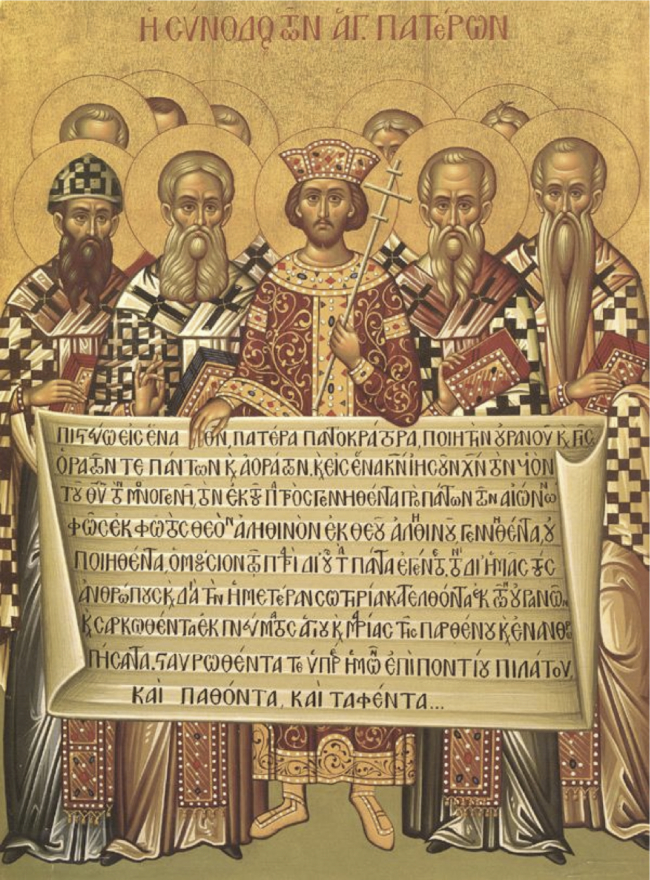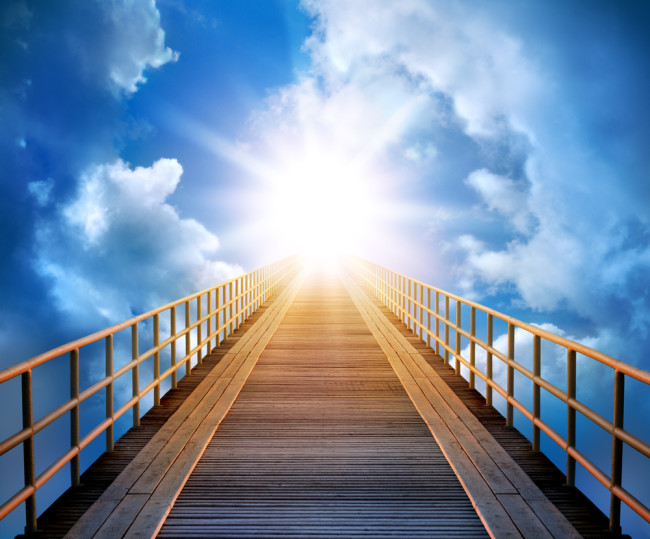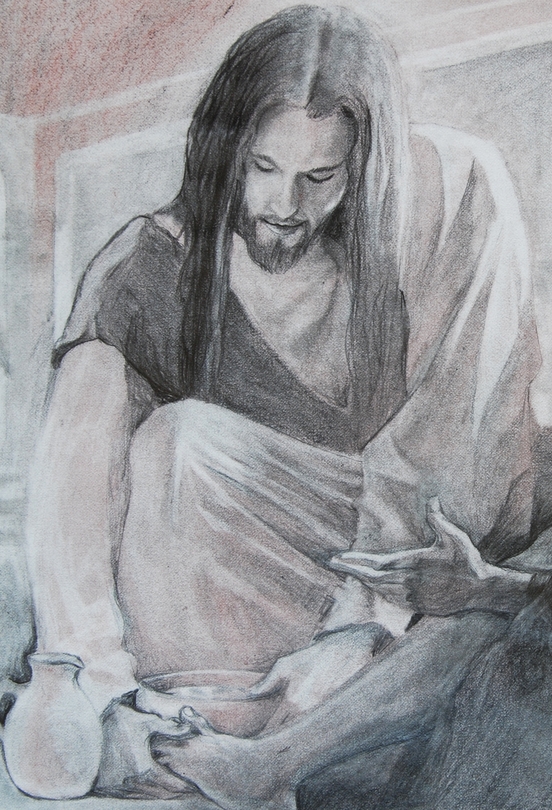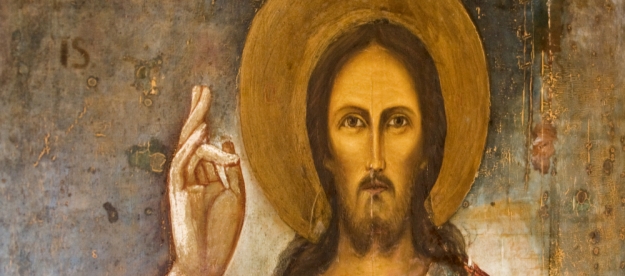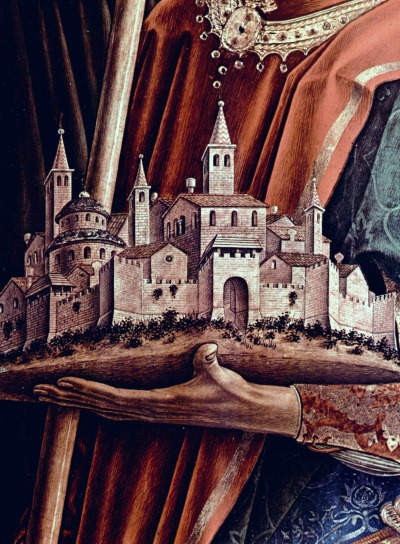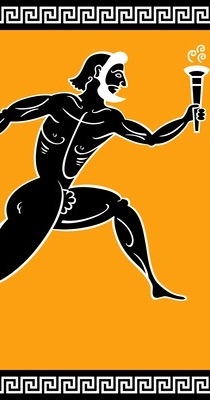Some people are highly devotional because it is scary having one's paradigm shattered. This is to be exposed to the chaos of one’s own mind (the devil!). It is much easier to cling to the established artifacts of one’s own thinking then to fall into the pit of chaos. Most people would rather die than admit that the belief system/paradigm that they have carried most or all their life is wrong in spite of proof of error time and time again.
If God is the source of Love, let us worship God by loving. If God is the ground of being, let us worship God by having the courage to be more fully human; the embodiment of the Divine.
A sermon preached on the Second Sunday after Christmas – the readings for this sermon include: John 1:1-9, The Gospel of Thomas 70; Matthew 2:1-12.
This is what the Book of Revelation is really about. It's not about the end of the world, as such. It's about the destruction of the feudalistic, repressive, economic monolith which it calls “Babylon the Great”.
If God is love, then God is something we do, rather than somebody or something we try to believe in. If God is love, then God is a relationship, and not a Guy in the Sky or some other kind of supernatural entity. If God is love, God is nothing to fear. If God is love, when we really love someone - even of another religion, or of no religion at all - God is in that relationship, blessing it. So these three words wipe away all the theological debates about science and common sense versus religion. These three words sweep away the problem of evil, the perennial conundrum of how an all-powerful God could love people while allowing horrible things to happen to them. If God is love, then God is not in charge of the universe. Love is extremely powerful, but it is not directive. Love does not force anybody to do anything, nor to force anything to do anything to anybody. If God is love, then God is omni-attractive, not omni-potent.
Part 4 of the series, What Makes a Christian?
Sometimes our greatest breach with Scripture is not when we outright contradict it--it's what we choose to prioritize, diminish or outright ignore. There is a time for everything under heaven (Ecclesiastes 3:1). We need to put first things first and second things second. Much of Christianity focuses on salvation plans and doctrinal ideas.
Part 3 of the series, What Makes a Christian?
John 3:16 is a beautiful verse, understood this way--that God's act of sharing Jesus with us comes out of love, and that all who participate in that love through loving both God and one another follow in the Way of Jesus, which is the Way of eternity--to love Jesus so much that you imitate Him and follow His Way. To believe in His message so much that you follow it.
Willpower is our willingness combined with our power, applied with concentration and determination. Applying our willpower to achieve goals is really a discovery of the divine power and guidance that lies within all creation. We discover that willingness opens the gate to infinite possibilities.
Courage does not mean fearlessness and is a quality that exists within all beings and can be accessed at any time. We need only to turn inward to face life’s challenges with the courage that is already ours. Feeling anxious or fearful of new outward circumstances is normal for most people, but finding the courage to face those circumstances means recognizing that our divine nature is perfectly equipped and we have the inner resources to handle challenges.
I was . . . suddenly so uncomfortable with the words I have always known to say during communion
Download the PDF of A Joyful Path, Year One, Lesson #34 - "Experiencing God as Light" right into your digital device. God can be experienced as light, visible to the physical eyes and as a universal inner reality.
A Commentary for the Observance of Independence Day, 2015
Liberty and Freedom: People – especially politicians, it seems – frequently use the two terms interchangeably, as if they were the same thing. But while civil liberties can be legislated and personal freedoms can be infringed upon, there is something autonomous about personal choices and actions that can never ultimately be denied or encumbered. “Freedom is not something that anybody can be given,” the late author and civil rights activist, James Baldwin, once said. “Freedom is something people take, and people are as free as they want to be.” An earlier commentary considered the two ideas of conscience and consciousness as a spiritual component and practice of human experience. These comments are written as we approach our nation’s annual observance of the Independence Day holiday; exploring what might constitute a progressive Christian perspective of a kind of liberating “freedom” that is comprised of loosing the bonds of all the little deaths we die, and binding oneself to that which can irrepressibly spring once more to life.
Civilization defines justice as retribution – payback; an eye for an eye. But the deeper meaning of justice is distributive: the rain falls on the good, the bad, and the ugly without partiality. Civilization does not use that definition except in cases where there is clearly injustice if partiality enters the picture.
From the Festive Worship collection
When love and hatred engage in mortal conflict it is love which suffers most; but love has the final victory.
From the Boundless Life collection
I sing a song of the woman's voice Tender and strong and clear; Of those who longed to gain the vote Despite men's doubt and fear;
What can we learn from the Christmas story? I believe that just as Jesus seemed to be aware of the Divine Spark (or Christ) presence within him, which allowed him to love almost unreservedly and break boundaries, so too we are invited to see this Divine Spark within ourselves. God is literally with us. And isn't this what we need in today's world, where we see atrocities and tragedies such as the ones I listed above? If each of us were to acknowledge our inner divinity, and then recognize our neighbour's inner divinity - regardless of their religious beliefs or non-beliefs - would we then see larger stepping stones toward global peace?
From the Festive Worship Collection
Theme: Dreamtime Reality -- Season of Hope Thoughts for Reflection To travel hopefully is the mark of a pilgrim. To believe one has arrived is the mark of the insecure.
An Open-Ended “Creed” for a Progressive Christian
I have often said so-called “progressive Christianity” is a notion forever in search of its own elusive definition; and that’s as good a way of explaining it as we may be able to find. We live in a post-modern world that considers the age of Enlightenment to be a post-facto reality. As such, “progressive” thinking in an age of Reason has pushed the boundaries of nearly every facet of life, except one: those ‘traditional’ or ‘orthodox’ beliefs, based on certain creeds, doctrines and dogma that still dominate what it presumably means to be “Christian.” It hardly needs to be said that it is also why so many one-time believers have outgrown their one-time faith. Calling them merely “lapsed” is misleading. So much has elapsed in the world we have all come to know and take for granted, that the once-dominant Church -- -- despite all its denominational varieties -- has fast become a post-modern relic. Yet any critical examination of how Christian scriptures developed and how the history of the tradition evolved will quickly demonstrate how it has always been in a constant state of flux. Or, if you like, “progression.” It was only when it stopped and got stuck that we traded in the tent for a temple, and snuffed the life out of a movement that is progressive by its very nature. What then would constitute an honest statement of belief for at least this "progressive Christian?"
An extremely small percentage of the world’s Muslim population recognizes ISIS as having any sort of authority over their lives. In other words, being Muslim does not equate with ISIS affiliation. We need to stop acting as if the two are interchangeable and start acting out of love, rather than from hate or fear. Jesus said, “Your love for one another will prove to the world that you are my disciples” (John 13:35). If there is no love, there is no Christianity. Period. There is just an empty label that leaves the world seeing us in ways that will make you cringe.
Hebrew Scripture’s View of Life after Death It wasn’t until after the Babylonian Exile that the Pharisees accepted the idea of heaven and
The idea of a second coming of Christ is a mystery, if not explicitly controversial. Jesus’ followers apparently believed he would return during their lifetime after he was crucified. When that didn’t happen, later followers gradually changed the belief into an indefinite “someday.” After two thousand years of waiting, most Christians no longer look for it to happen in their lifetimes and acknowledge that Jesus may have been speaking metaphorically about his return. It is just as likely that those words were put into Jesus’ mouth by the gospel writers themselves. Wishful thinking?
A Commentary for the Annual Observance of Independence Day, 2013
“We hold these truths to be self-evident, that all men are created equal, that they are endowed by their Creator with certain unalienable Rights, that among these are Life, Liberty, and the pursuit of Happiness." These grand words are etched in the American consciousness, and serve as a preamble of sorts to the Constitution’s subsequent ideal goal of “a more perfect union.” With the recent split Supreme Court decisions over voting rights and marriage equality, along with and passage of an immigration reform bill in the Senate that naysayers declare is DOA in the House of Representatives, it would appear that while progress has been made, we clearly remain a work in progress, as well. As we prepare to celebrate our Independence Day holiday this year the fireworks have been set off a little early with the debate over the intelligence surveillance practices of the so-called Patriot Act by a government that was established of, by and for the people. Call them heroes or traitors, whistleblowers or hack-tivists, there are also a growing number of anti-authoritarian tech geeks who claim to be motivated less by notoriety than a certain principled conscience to which they claim to have pledged a higher allegiance. So, what is the nature of “natural” or “divinely-bestowed” rights? What of human conscience, earthly authority, and more? And – for those of us who might consider ourselves both a red-blooded American and Christian of one sort or other -- what might constitute a “Christian” conscience, based on a Jesus life-ethic? You can find the latest commentary Here.
Once upon a time, political conservatives in America were stereotyped as hard-headed realists, and liberals were described as ungrounded dreamers. How times have changed!
Community Christian Church of Springfield
The miracles in the New Testament are called "signs." They are metaphors for the Kingdom. In John 5, Jesus heals a man who has been looking at his source of healing, a pool that this sermon titles "the hospital" but the rules are such that he cannot get in to be healed. Jesus breaks through that injustice to bring healing to the one who needs it the most, without an insurance card, without proof of employment or citizenship. And that is what the faith community is called to do: to break the rules that bar the sick from health care, that favors banks over homeowners and corporate profits over the interests of those who need air and water that has not been polluted.
(based on John 5: 37-47, Romans 8: 18-25)
When one comes in a never-uttered name God wins the glory for all that is done: It's in hoping for what cannot be claimed That every inch of justice is won.
The great dividing line for two religions and the relationship between them is the period of 66-70 CE, which ended in the destruction of both Jerusalem and the great "Second Temple". For Jews of the time this destroyed the political, economic and religious organization of Israel....
As an Episcopalian I regularly recite the Apostles' Creed and pray the Lord's Prayer. In doing so, I stand with Jesus' early followers as they struggled to find words that could frame how their lives were being renewed beyond comprehension. My life also is being renewed beyond comprehension, or so I'm convinced, as I try to live out the self-giving embodied in the common life Jesus began. But I live in a vastly different time and place from those of Jesus' early followers. My everyday assumptions about the world and how it works are vastly different, not final truths, mind you, but still different, and just as inescapable as people's everyday assumptions back then.
Jerusalem, Now and When?
Why would a Jewish American doctor risk serving the medical needs of Palestinian children in the occupied territories of the West Bank?
Jesus' Way of Confounding the Trophy-centric Ways of this World
The ancient Olympic games were a series of athletic competitions between city-states. The results determined who were the winners, and who were the losers. But during the games, any conflict between the warring states was forbidden. If ever there was a time when that Olympic torch should be lit and never be extinguished, perhaps this is it. But how? It seems international good sportsmanship inside the stadium can only be assured by heavy security on the outside; where unruly competing self-interests would seek to turn winning at all cost into a blood sport. The previous Words & Ways commentary explored a foolish kind of wisdom once espoused by a Galilean sage through his teaching, the parables he told, and even the seeming absurdity found in his miracles (see "The Foolishness of Jesus"). It is this same Jesus tradition that also proposes such counter-cultural notions that one can “win by losing," and “the last shall be first." Here's John Bennison's latest commentary from Words & Ways.
I simply do not believe that at this point in time the distinctiveness of our different churches is more important than the values and common understandings of Scripture that unite us.

